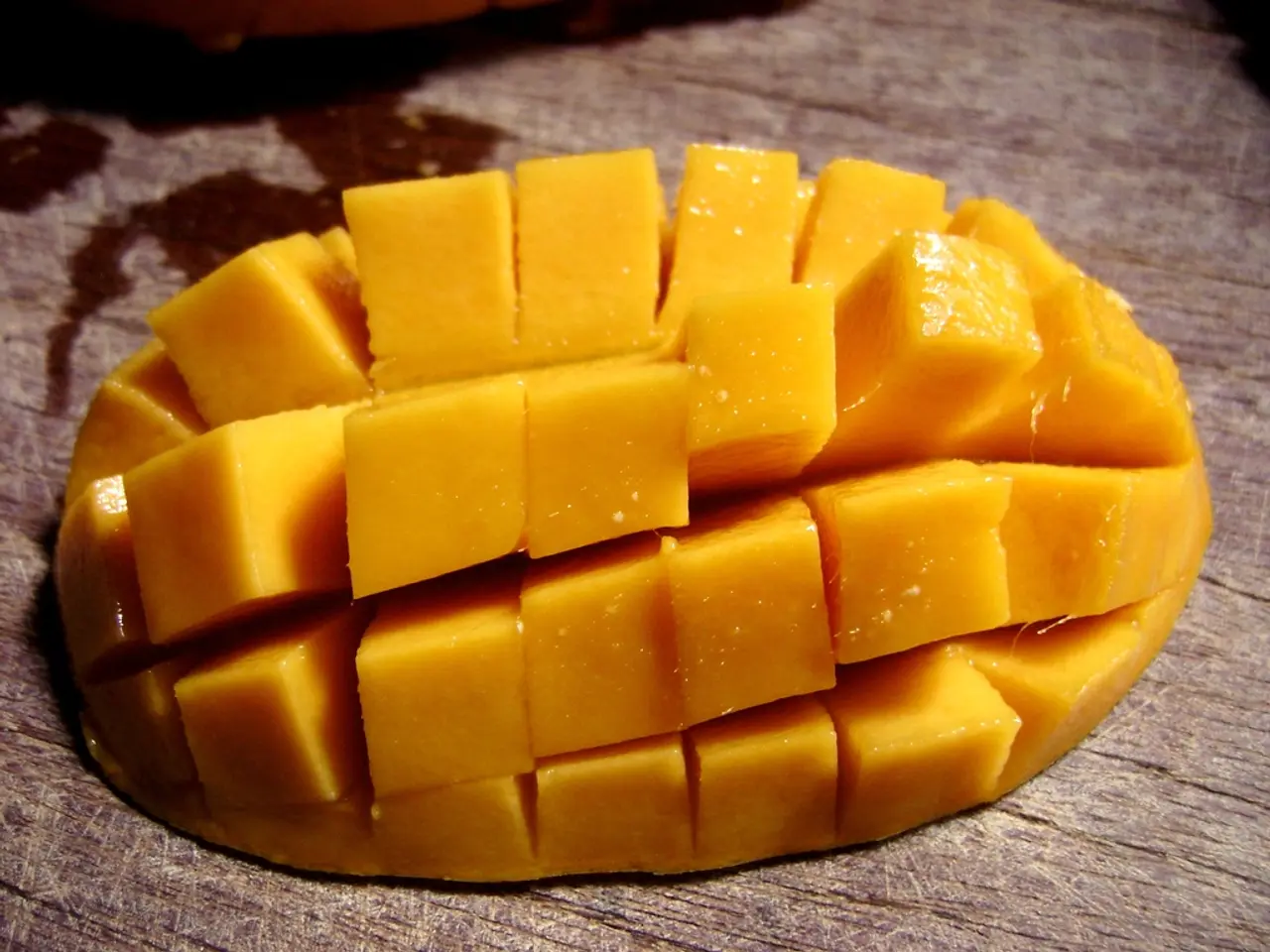Can a minimal initial investment result in substantial mango farmland earnings by the year 2024?
Mango farming is proving to be a lucrative business opportunity in the agriculture industry, with a potential return on investment (ROI) of 20% to 30% annually by 2024. This promising outlook is attracting investors and farmers alike, especially those who are eco-conscious and value sustainable farming practices.
Sustainable Cultivation
Adopting sustainable farming methods is key to success in mango farming. Organic growing methods, water-saving policies, and natural insect control not only appeal to eco-conscious consumers but also increase the value of the produce. Modern farming techniques, such as precision fertilisation, automated pest monitoring, and better soil testing, can help increase farm productivity and cut costs. Drip irrigation systems, for example, maximise water use and reduce waste, while integrated pest management (IPM) methods can reduce the need for chemical inputs.
Rejuvenation and IPM
Rejuvenating old orchards and implementing IPM strategies can significantly boost productivity per hectare. Rejuvenating old orchards involves planting improved, high-yield, and export-quality mango cultivars that are pest-resistant and climate-resilient. IPM, on the other hand, focuses on sustainable and eco-friendly practices to reduce reliance on costly and harmful pesticides, thus lowering input costs while protecting long-term soil and tree health.
Government Support and Training
Participating in government schemes and subsidies can offset initial costs and add value to output through processing. These programs often include those for cultivation expansion, orchard rejuvenation, training, and setting up small-scale pulping or processing units. Improving knowledge and skills via training and extension services can help farmers implement best crop management, irrigation, fertilization, and harvesting practices effectively.
Market Intervention and Export Opportunities
Utilising price support mechanisms and market intervention schemes can protect farmers from distress sales during peak harvest periods. Leveraging export market opportunities by growing GI-tagged or premium mango varieties favoured internationally, and adopting proper post-harvest handling and cold-chain logistics to enhance fruit quality and marketability, can further boost profits.
Starting Small and Focusing on Quality
Starting with small-scale investments in drip irrigation, organic fertilizers, and protective gear can increase efficiency and reduce costs while protecting farmer health and the environment. Choosing disease-resistant, high-yielding mango cultivars such as Alphonso, Kesar, and Chaunsa can maximise profits. Building relationships with customers and exploring niche markets can provide new income sources.
The Road to Success
Success in mango farming requires dedication, knowledge, and adaptability to match changing circumstances. A farmer who installed a drip irrigation system saw an enhancement in fruit quality and market value. Mango farmland is a top investment choice in 2024 due to its high market value, worldwide demand, and growing interest in sustainable agriculture. Long-term soil quality and better resistance against climate variability result from sustainable practices, increasing profitability.
In conclusion, by focusing on sustainable cultivation, leveraging government support, engaging in capacity building, and targeting value addition and export markets, farmers with minimal capital can enhance mango yield and profitability effectively in 2024.
Read also:
- Catastrophic blast at a US Steel facility in Pennsylvania causes 2 fatalities, inflicts injuries on 10 individuals
- Weekly developments in the German federal parliament, the Bundestag
- Solar Shutdown: Merz Proposes Billions of Gas Discharge - Reverse Plan
- New guidelines for NEPA processes unveiled by federal agencies, in alignment with Executive Order 14154 and the Seven County Decision of the Supreme Court




